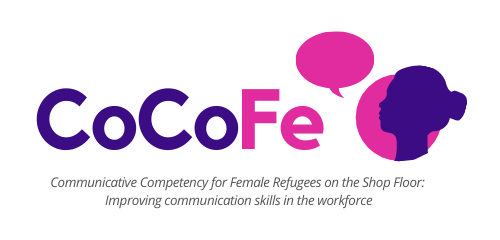Communicative Competency for Female Refugees
About the project
This project is aimed towards increasing the communicative competence and language understanding of female refugees and forced migrants who are, according to the OECD, disadvantaged due to their (1) comparatively low-level of formative education, (2) their gender and (3) their ‘status’ as refugees in the local community in which they live and the businesses in which they work. This issue is relevant to all countries in Europe be they EU-transitional states, candidate members to the European Union, Schengen countries or allied countries. CoCoFe’s emphasis on female refugees and forced migrants aims to be complementary to other projects in the field of refugee and migrant integration that have been initiated by Erasmus and/or external organisations. CoCoFe is unique in that its recipients would be working-age female migrants and forced female migrants possessing few transferable qualifications or are low-skilled – within the European context – who are working in small industry or the retail sector where the register of language in vastly different from that found in the professional sphere. To mitigate this, the project’s objectives are to:
- establish a self-sustaining collaborative digital learning website for female refugees, forced migrants (FRFM) and their work colleagues employed in factories who will act as language mentors;
- develop a competency- and socio-cultural-based approach to language learning a language for the FRFMs and their co-worker mentors;
- familiarise refugees and migrants with the working practices and culture of their new country of residence;
- familiarise the FRFMs with informal register and the performative aspects of the local language focusing on aural and oral communication skills;
- Encourage the development of their digital skills;
- Encourage local employees and businesses who wish to improve their cultural awareness and help refugees integrate.
The issue of refugees and forced migrants is a global issue so by definition transnationality is implied. Only internationally can solutions be found for the settlement, integration and participation of refugees and forced migrants in civil society. Many of the problems these women have are common across the European continent.
The European Commission support for the production of this publication does not constitute an endorsement of the contents which reflects the views only of the authors, and the Commission cannot be held responsible for any use which may be made of the information contained therein.

